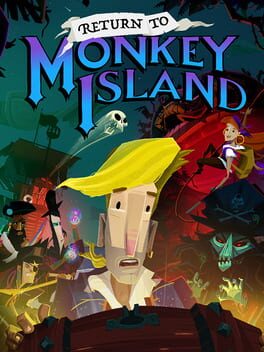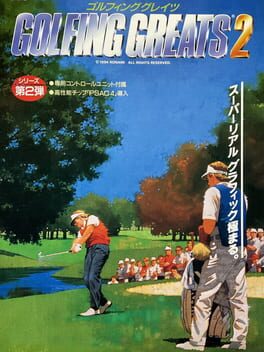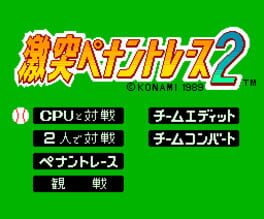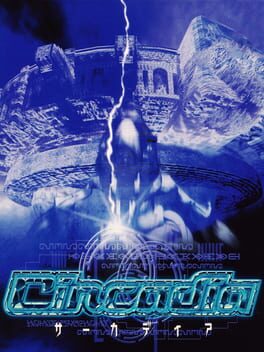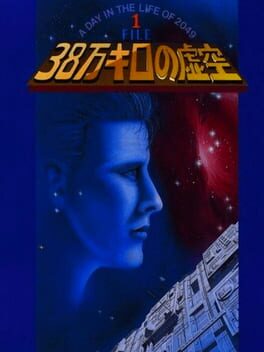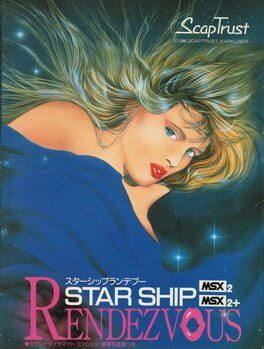BiFiBi
1 review liked by BiFiBi
This review contains spoilers
Nostalgia is a strange beast. It's something of a dirty word in our current landscape, and for good reason. Nostalgia is blinding. It keeps you from facing the unpleasant truths or accepting the new. It's been a key motivator behind some truly heinous people committing some truly heinous acts. Nostalgia, more often than not, is bad.
But still, there’s something addicting about it. You can get how people fall into these traps with nostalgia properties and feelings. When I see the thing I recognize in the Marvel, I also hoot and holler. I’m not above it, even when I know in my heart the actual use of the things I recognize will upset me. It won’t really be the thing I like. It’ll feel shallow and pointless, partly because it is, but also because I’m not a child anymore. The same things don’t give me the same rush. And that’s alright.
When I was about 12, the special edition versions of Monkey Island were released. I understand why old fans didn’t like them, why they felt like something was lost in the process. But it was my first time playing the game and it set me on fire. It was the first non-Nancy Drew point and click I’d really played and it changed my whole world. It brought me into the wider world of the genre and it filled me with such a… lightness. I inhaled the whole franchise in one summer, followed by King’s Quest the next. I fantasized about having an “insult swordfighting” club with friends, I imagined the quiet, intimate moments of this goofy world, and I just let it all sink over me completely.
And despite rolling my eyes at those old fans all those years ago, I found myself falling into the same trap in 2022. My first reaction to the new art style was annoyance and confusion. It looked different. It wasn’t the thing I knew. It wasn’t the way it was supposed to be.
The marketing material around this game pitched it as Monkey Island 2B. Monkey Island 3-5 didn’t exist in Ron Gilbert’s vision, we’re back to where things left off. It's the old thing. It's the way it's supposed to be.
Except, that’s not exactly true. Because you can’t go back. You can’t turn back time. That’s just not how it works. The game instantly reveals that this was a prank. This is Monkey Island 6. Why would you want to go back?
When Guybrush Threepwood arrives on Melee Island, he’s excited to see all his old friends again. He’s decided he’s going to Return to Monkey Island to finally figure out the Secret of Monkey Island. He figures he’ll have to do a new version of the three trials from the first game, and heads off to the Pirate Leaders.
Except, that’s not true. You can’t go back. You can’t turn back time.
The Pirate Leaders have been replaced with new, even colder pirate leaders. They aren’t interested in playing ball with Guybrush, a washed-up hack who’s never really done much pirating. Guybrush is forced to figure out his own way. His old crew has moved on. Carla the Swordmaster is a Governor now, no time for insult swordfights. The Voodoo Lady is closing up shop and she can’t be bothered to keep up the mystery of her name anymore. Things are changing. Things are ending.
In Act 3, Guybrush hops on a cliff, close to the edge. I grin. I know they’re teasing me. In the first Monkey Island, if you fall off the cliff, Guybrush will simply hop back up and casually report: “rubber tree.” It’s a gag that destroyed me back in the day.
Later on, Guybrush is pushed off the cliff. Instinctively, I wait for him to pop back up. This is a clever way to call back to that gag, I think. Despite myself, I look forward to seeing a reference to the thing I liked as a kid.
The camera pans down. The rubber tree was cut down ages ago. Guybrush is broken and bruised on the ground. Recreating the past is just hurting him.
You can’t go back. You can’t turn back time.
The nostalgia in Return to Monkey Island works so much because it's not a shallow reference to help the audience go “I recognize the thing!” It's Guybrush himself feeling that nostalgia and missing how things used to be. He treats the returning characters with a bit more care and sincerity and they treat him the same way. Despite all the damage he’s done to them across the franchise, they seem to have genuinely caught onto Guybrush’s good nature. There’s a warmth there.
At the same time, there’s a real reckoning with Guybrush’s behavior.
You have two to-do lists throughout the game. Your main to-do list, where your general game tasks sit, and LeChuck’s to-do list, an encouraging pamphlet you acquire for “how to be like LeChuck.”
The top priority on Guybrush’s to-do list is “relive the glory days.” He wants to feel the rush of it all again. As Guybrush gets more extreme in his methods, LeChuck’s to-do list starts checking off too. The distinction between the hero and the villain blurs. Nostalgia is driving them both to horrible acts, just to feel the same way you did back in the day. But the heroes are old now. The world’s changed.
Ron Gilbert and Dave Grossman have changed.
I’ve never been fond of the ending of Monkey Island 2 and especially not the ending of Thimbleweed Park. Both of these games swerve out to reveal that, surprise, this was a game all along. Monkey Island 2 does this metaphorically while Thimbleweed Park does this more literally. It was particularly egregious with Park, as all of the character developments and plot get tossed out the window to have a meta-journey finale. I’ve joked to friends that “Ron Gilbert’s been chasing his perfect twist ending for years and he doesn’t know when to let it go.”
Return revists this ending once again, but for once, Gilbert genuinely seems to have nailed it. It makes me reflect on my negative reaction to the previous two attempts and wonder why I got so frustrated to begin with. It was always a game, I knew that when I started. Why would I be frustrated when the game acknowledges that? It's just a story. Those stories can have power and beauty and meaning. The joy in stories comes from sharing them, even if you have to accept that the stories will mean different things to other people.
Guybrush: “I guess I thought there would be something more at the end.”
Elaine: “Could anything ever live up to what you imagined?”
Ron Gilbert, Dave Grossman, and their cohorts helped cultivate an entire genre, help it thrive, and had to watch the business leave them behind. I can’t even imagine how frustrating that was for them. But whatever their personal journey entailed, and it's certainly no business of mine, they use that to infuse Return with this quiet, peaceful energy by the end. Who knows if it will be a swansong for Guybrush, but it feels like the swansong for their relationship with Guybrush. They all got to sit together again, crack open a grog, and marvel at the life they’ve led and the world they built.
Stop the rides, turn off the lights, and lock the door. It's closing time.
But still, there’s something addicting about it. You can get how people fall into these traps with nostalgia properties and feelings. When I see the thing I recognize in the Marvel, I also hoot and holler. I’m not above it, even when I know in my heart the actual use of the things I recognize will upset me. It won’t really be the thing I like. It’ll feel shallow and pointless, partly because it is, but also because I’m not a child anymore. The same things don’t give me the same rush. And that’s alright.
When I was about 12, the special edition versions of Monkey Island were released. I understand why old fans didn’t like them, why they felt like something was lost in the process. But it was my first time playing the game and it set me on fire. It was the first non-Nancy Drew point and click I’d really played and it changed my whole world. It brought me into the wider world of the genre and it filled me with such a… lightness. I inhaled the whole franchise in one summer, followed by King’s Quest the next. I fantasized about having an “insult swordfighting” club with friends, I imagined the quiet, intimate moments of this goofy world, and I just let it all sink over me completely.
And despite rolling my eyes at those old fans all those years ago, I found myself falling into the same trap in 2022. My first reaction to the new art style was annoyance and confusion. It looked different. It wasn’t the thing I knew. It wasn’t the way it was supposed to be.
The marketing material around this game pitched it as Monkey Island 2B. Monkey Island 3-5 didn’t exist in Ron Gilbert’s vision, we’re back to where things left off. It's the old thing. It's the way it's supposed to be.
Except, that’s not exactly true. Because you can’t go back. You can’t turn back time. That’s just not how it works. The game instantly reveals that this was a prank. This is Monkey Island 6. Why would you want to go back?
When Guybrush Threepwood arrives on Melee Island, he’s excited to see all his old friends again. He’s decided he’s going to Return to Monkey Island to finally figure out the Secret of Monkey Island. He figures he’ll have to do a new version of the three trials from the first game, and heads off to the Pirate Leaders.
Except, that’s not true. You can’t go back. You can’t turn back time.
The Pirate Leaders have been replaced with new, even colder pirate leaders. They aren’t interested in playing ball with Guybrush, a washed-up hack who’s never really done much pirating. Guybrush is forced to figure out his own way. His old crew has moved on. Carla the Swordmaster is a Governor now, no time for insult swordfights. The Voodoo Lady is closing up shop and she can’t be bothered to keep up the mystery of her name anymore. Things are changing. Things are ending.
In Act 3, Guybrush hops on a cliff, close to the edge. I grin. I know they’re teasing me. In the first Monkey Island, if you fall off the cliff, Guybrush will simply hop back up and casually report: “rubber tree.” It’s a gag that destroyed me back in the day.
Later on, Guybrush is pushed off the cliff. Instinctively, I wait for him to pop back up. This is a clever way to call back to that gag, I think. Despite myself, I look forward to seeing a reference to the thing I liked as a kid.
The camera pans down. The rubber tree was cut down ages ago. Guybrush is broken and bruised on the ground. Recreating the past is just hurting him.
You can’t go back. You can’t turn back time.
The nostalgia in Return to Monkey Island works so much because it's not a shallow reference to help the audience go “I recognize the thing!” It's Guybrush himself feeling that nostalgia and missing how things used to be. He treats the returning characters with a bit more care and sincerity and they treat him the same way. Despite all the damage he’s done to them across the franchise, they seem to have genuinely caught onto Guybrush’s good nature. There’s a warmth there.
At the same time, there’s a real reckoning with Guybrush’s behavior.
You have two to-do lists throughout the game. Your main to-do list, where your general game tasks sit, and LeChuck’s to-do list, an encouraging pamphlet you acquire for “how to be like LeChuck.”
The top priority on Guybrush’s to-do list is “relive the glory days.” He wants to feel the rush of it all again. As Guybrush gets more extreme in his methods, LeChuck’s to-do list starts checking off too. The distinction between the hero and the villain blurs. Nostalgia is driving them both to horrible acts, just to feel the same way you did back in the day. But the heroes are old now. The world’s changed.
Ron Gilbert and Dave Grossman have changed.
I’ve never been fond of the ending of Monkey Island 2 and especially not the ending of Thimbleweed Park. Both of these games swerve out to reveal that, surprise, this was a game all along. Monkey Island 2 does this metaphorically while Thimbleweed Park does this more literally. It was particularly egregious with Park, as all of the character developments and plot get tossed out the window to have a meta-journey finale. I’ve joked to friends that “Ron Gilbert’s been chasing his perfect twist ending for years and he doesn’t know when to let it go.”
Return revists this ending once again, but for once, Gilbert genuinely seems to have nailed it. It makes me reflect on my negative reaction to the previous two attempts and wonder why I got so frustrated to begin with. It was always a game, I knew that when I started. Why would I be frustrated when the game acknowledges that? It's just a story. Those stories can have power and beauty and meaning. The joy in stories comes from sharing them, even if you have to accept that the stories will mean different things to other people.
Guybrush: “I guess I thought there would be something more at the end.”
Elaine: “Could anything ever live up to what you imagined?”
Ron Gilbert, Dave Grossman, and their cohorts helped cultivate an entire genre, help it thrive, and had to watch the business leave them behind. I can’t even imagine how frustrating that was for them. But whatever their personal journey entailed, and it's certainly no business of mine, they use that to infuse Return with this quiet, peaceful energy by the end. Who knows if it will be a swansong for Guybrush, but it feels like the swansong for their relationship with Guybrush. They all got to sit together again, crack open a grog, and marvel at the life they’ve led and the world they built.
Stop the rides, turn off the lights, and lock the door. It's closing time.
